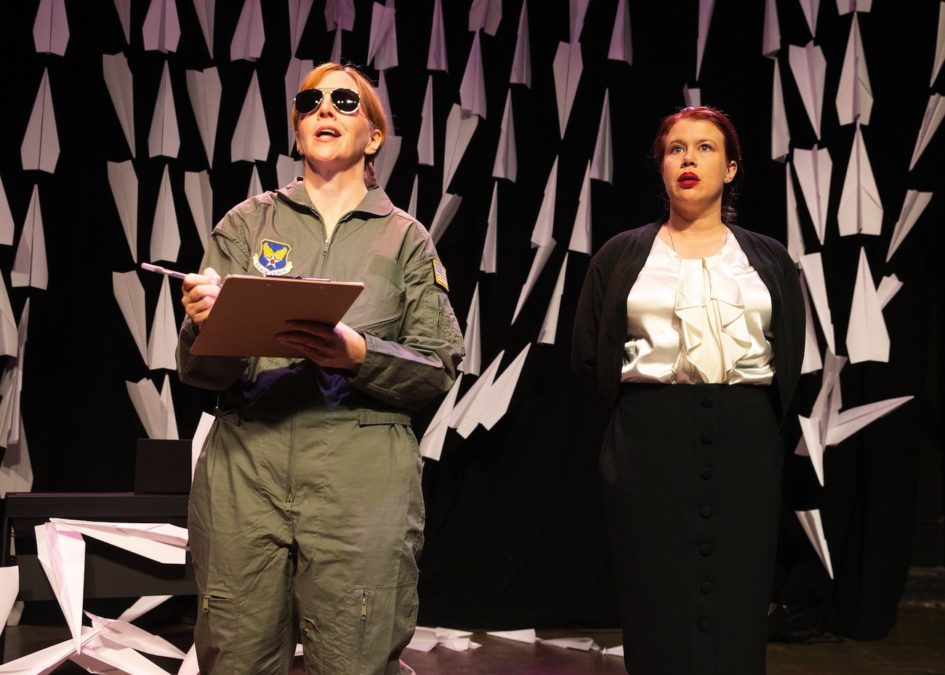
Karen Harrison, left, and Brittany Flurry star in the dramedy “100 Planes” about women trying to balance ambition and love set against a military backdrop and the era of “Don’t Ask, Don’t Tell” in 1997. Photo: Steve Rogers.
Lila Rose Kaplan said her dramedy play “100 Planes” is about women trying to balance ambition and love. Complicating the matter, the story set against a U.S. military backdrop during the era of “Don’t Ask, Don’t Tell.”
That official government policy prohibited military personnel from discriminating against or harassing closeted gay, lesbian, or bisexual service members or applicants, while barring openly gay, lesbian, or bisexual people from military service.
“I wrote ‘100 Planes’ as I was starting out as a professional playwright,” Kaplan said in a statement. “I was quite conscious of being a young woman in a field dominated by men. I wanted to investigate what it takes for women, in any field, to balance ambition and love.”
“100 Planes” is at The Broadwater Black Box in Hollywood for its West Coast premiere. It closes August 4 and has performances on Thursdays, Fridays, and Saturdays.
Gays, lesbians who served during World War II found freedom, were persecuted
“Sometimes we see ambitious women portrayed, and we often see romantic women, but rarely do we see women who are after both ambition and love,” Kaplan said.
“100 Planes” follows three women on a U.S. Air Force Base in Germany. Set in 1997, the play follows hotshot young pilot Lt. Kay McClure (Alani Rose Chock), who dreams of being the first woman to fly a new hybrid-fighter jet. McClure begs the legendary Maj. Anne Clarkson (Karen Harrison) to train her. Clarkson pushes McClure toward the brink, even though Monique, Clarkson’s lover (Brittany Flurry) raises concerns.
“Many of the plays I write are the plays I wish I could see,” Kaplan said. “I long for stories about women that are more dimensional. ‘100 Planes’ looks at three women and one man grappling with the same question – Is it possible to love what you do and love another person?”
